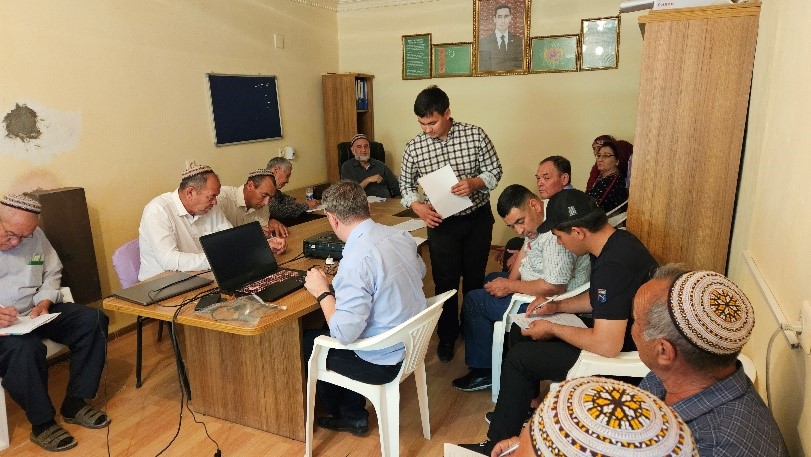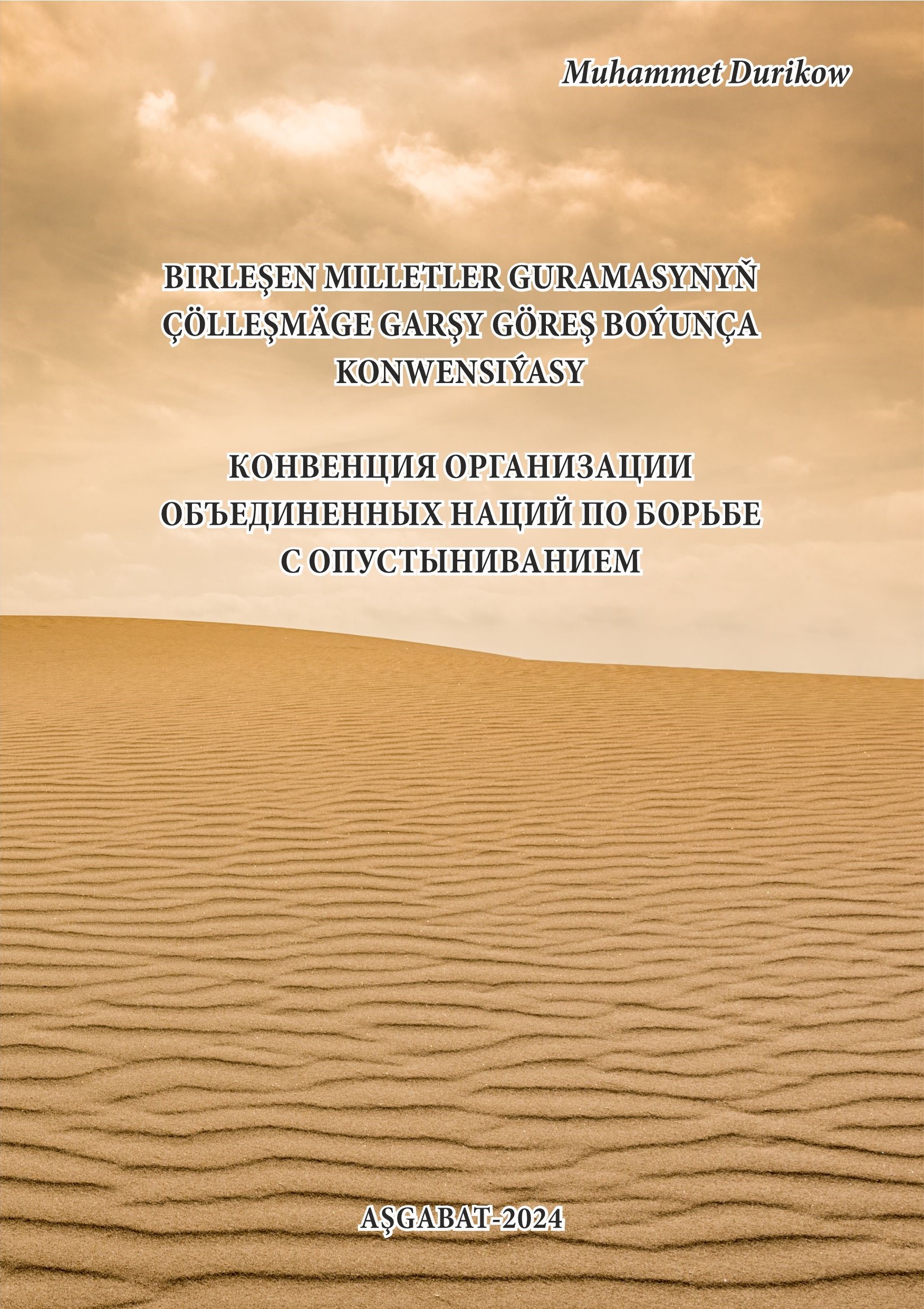Development of a Comprehensive plan for the restoration of degraded desert pastures in the Central Karakums and their sustainable management in conditions of increasing drought

The proposed project aims to support local communities living in the desert conditions of the Central Karakums. Their main occupation is transhumance desert livestock farming on the territory of the Farmers Association “Yerbent” located in the Central Karakum Desert. The life of the local population is completely dependent on livestock products, and this, in turn, is directly affected by the state of the food supply of desert pastures. This area is characterized by typical desert vegetation and sharp seasonal fluctuations in forage availability. The pasture area covers about 800,000 hectares. The main activity of local communities is migratory desert livestock farming, which is entirely dependent on the condition of the pastures.
Goal: The main goal of the project will be to prepare a Plan for Sustainable Management of Desert Pastures. This will be achieved by analysing pasture problems at the local community level, informing them about the needs of achieving a balance between the capacity and productivity of pasture areas, as well as increasing the number of livestock and water supply to the territories, and identifying and implementing management methods and technologies to increase pasture productivity in the Central Karakums.
Project Duration: January 2023 - October 2024
Customer: CACILM-2 Project of FAO
Project Objectives:
| 1. | Analysis of the state of pastures including studying legislation, policies, and current issues in pasture relationships. |
| 2. | Assessment of pastures in the FA "Yerbent" including ecological state, yield, degree of degradation, water availability, impact of climate changes. |
| 3. | Development of a Sustainable Management Plan through implementing of pasture rotations, using GIS technologies, improving water supply (rehabilitation/construction of wells and sardobs). |
| 4. | Dissemination of management methods |
The project will contribute to the broader CACILM-II regional project`s Outcome including 2.1: Resilience integrated across natural resources management (NRM) sectors and production landscapes, Output 2.1.1: Formulation, review or update of national drought policies, strategies and guidelines for drought preparedness planning, Outcome 3.1: Upscaling of a proactive drought risk management (DRM) approach and innovative integrated natural resources management (INRM) technologies in selected production landscapes/land use systems (e.g. pastoral, agro-sylvo-pastoral, tree-based, irrigated, rainfed, home gardens), Output 3.1.1: At least 2 multi-stakeholder land-use plans for selected production landscapes per country and Output 3.1.3: Upscaling of 5-6 innovative drought mitigation technologies in selected production landscapes on 239,500 ha of land.
 Photocredit to SIC ICSD on the consultations conducted with all interested parties (Yerbent, 2024)
Photocredit to SIC ICSD on the consultations conducted with all interested parties (Yerbent, 2024)
Project Outcomes:
- A Comprehensive Plan for the Restoration of Degraded Desert Pastures in the Central Karakum and Their Sustainable Management under Increasing Drought was developed.
- A database was established for collecting and processing information on pasture use.
- A Training Module on Integrated Management of Desert Pastures was developed.
- A manual and informational materials on participatory pasture management were prepared.
- Video materials were produced to support knowledge dissemination.
- Trainings were conducted for local communities, including teachers and students, on the principles of sustainable pasture management.
- School libraries were provided with methodological literature to enhance the capacity of local communities.
Project Activities:
SIC ICSD Experts Conduct Field Studies of Rangelands in the Central Karakums (14-17 April 2024)
SIC ICSD held a seminar on restoration of degraded pastures of Central Karakums (September 4, 2024)
Interviews:
Director of SIC ICSD gave an interview on the restoration of degraded rangelands (March 30, 2025)
Project Publications:
 |
||
| Comprehensive Plan for the Restoration of Degraded Desert Pastures in the Central Karakum and Their Sustainable Management under Increasing Drought (in English and Russian) |
Training Module on Integrated Management |
United Nations Convention to Combat Desertification, |



